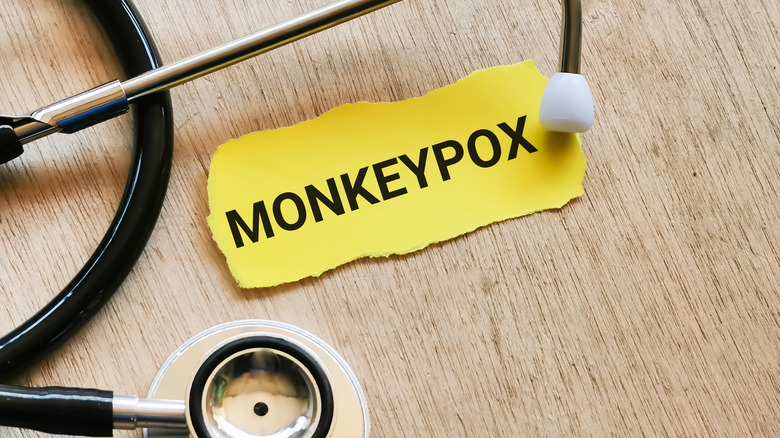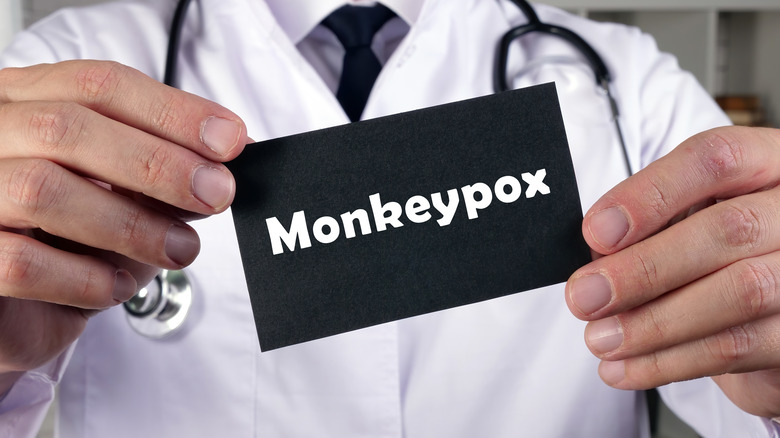Why The CDC Suggests The LGBTQ+ Community Is More Vulnerable To Monkeypox Exposure
As of last week, at least 160 cases of monkeypox had been reported around the world (via NBC News). Most of these cases are in Europe, which is a cause for concern because the disease is not typically found in this area. While everyone is able to get and spread monkeypox, the CDC recently made a statement warning that the LGBTQ+ community may be more vulnerable to the disease (via CNN).
"Some groups may have a greater chance of exposure right now, but by no means is the current risk of exposure to monkeypox exclusively to the gay and bisexual community in the US," said Dr. John Brooks, chief medical officer for the CDC's Division of HIV/AIDS Prevention. "Anyone, anyone, can develop [and] spread monkeypox infection, but ... many of those affected in the current global outbreak identified as gay and bisexual men." Again, it is important to note that everyone is susceptible to monkeypox, but it is also important for those who have a higher risk of getting and spreading the disease to be aware of that risk.
What is monkeypox?
Monkeypox is a virus that is similar to smallpox (via CDC). It is spread through contact with an infected animal, typically a monkey or a rodent. The virus can also be spread from person to person, which is why it's important for those who have been exposed to the virus to get tested and quarantined as soon as possible. Monkeypox typically causes fatigue, fever, and headache, as well as a rash that can form on the face, hands, and feet. The disease can be deadly in some cases. There is no specific treatment for monkeypox, but there is a vaccine that can help prevent the virus from spreading.
In addition to getting the vaccine, there are a number of ways you can reduce your risk of getting monkeypox. Avoiding contact with animals that could be infected, washing your hands often, and avoiding close contact with people who are sick are all preventative measures you can take. If you think you may have been exposed to monkeypox, it's important to see a doctor as soon as possible. Early diagnosis and treatment is essential for preventing the virus from spreading.


